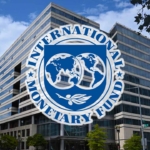General
Ghana’s public debt sustainable but still at high-risk of debt distress – IMF
The International Monetary Fund has disclosed that Ghana’s public debt is sustainable as the external debt restructuring is expected to be completed in line with programme parameters. According to the Fund, its Staff’s baseline is based on a full post-restructuring macro-framework incorporating t...
MyJoyOnline
published: Jul 12, 2025


The International Monetary Fund has disclosed that Ghana’s public debt is sustainable as the external debt restructuring is expected to be completed in line with programme parameters.
According to the Fund, its Staff’s baseline is based on a full post-restructuring macro-framework incorporating the domestic debt restructuring, the treatment of official bilateral claims agreed with Ghana’s Official Creditor Committee (OCC), and the recently completed Eurobond exchange.
“It also assumes a treatment of the residual claims of other external commercial creditors in line with the authorities’ restructuring strategy and consistent with programme parameters and creditors’ comparability of treatment (CoT) principle”, it revealed in a its 4th Review Under the Extended Credit Facility (ECF) programme.
It pointed out that Ghana is assessed at a high risk of debt distress due to near-term breaches of the Debt Sustainability Analysis (DSA) thresholds, but is expected to reach a moderate risk of debt distress by end-2028 with all the debt indicators falling below their respective thresholds under the baseline.
It continued that Ghana’s exceptional financing gap is closed with international reserves reaching 3.0 months of imports at the end of the programme.
Meanwhile, the Fund said the country’s fiscal performance deteriorated markedly in the run-up to the elections.
Provisional data on the 2024 fiscal outturn pointed to a significant widening of fiscal imbalances, despite revenue performance being broadly consistent with expectations.
The primary balance on commitment basis recorded a deficit of 3.3% of Gross Domestic Product—as opposed to a programmed surplus of 0.5% of GDP—mainly reflecting a net accumulation of payables tentatively estimated at some 2.6% of Gross Domestic Product.
Read More